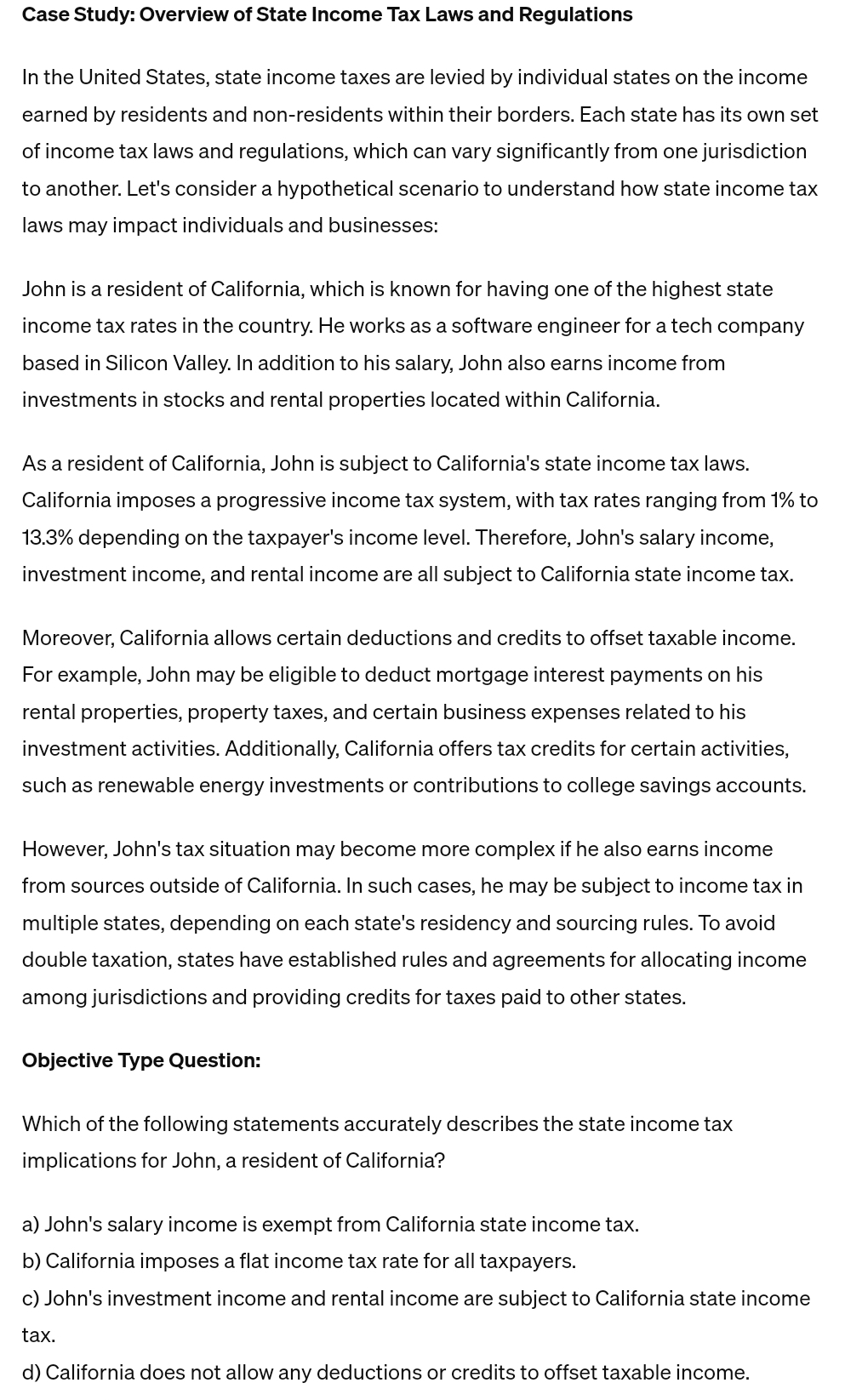Answered step by step
Verified Expert Solution
Question
1 Approved Answer
Case Study: Overview of State Income Tax Laws and Regulations In the United States, state income taxes are levied by individual states on the income
Case Study: Overview of State Income Tax Laws and Regulations
In the United States, state income taxes are levied by individual states on the income earned by residents and nonresidents within their borders. Each state has its own set of income tax laws and regulations, which can vary significantly from one jurisdiction to another. Let's consider a hypothetical scenario to understand how state income tax laws may impact individuals and businesses:
John is a resident of California, which is known for having one of the highest state income tax rates in the country. He works as a software engineer for a tech company based in Silicon Valley. In addition to his salary, John also earns income from investments in stocks and rental properties located within California.
As a resident of California, John is subject to California's state income tax laws. California imposes a progressive income tax system, with tax rates ranging from to depending on the taxpayer's income level. Therefore, John's salary income, investment income, and rental income are all subject to California state income tax.
Moreover, California allows certain deductions and credits to offset taxable income.
For example, John may be eligible to deduct mortgage interest payments on his rental properties, property taxes, and certain business expenses related to his investment activities. Additionally, California offers tax credits for certain activities, such as renewable energy investments or contributions to college savings accounts.
However, John's tax situation may become more complex if he also earns income from sources outside of California. In such cases, he may be subject to income tax in multiple states, depending on each state's residency and sourcing rules. To avoid double taxation, states have established rules and agreements for allocating income among jurisdictions and providing credits for taxes paid to other states.
Objective Type Question:
Which of the following statements accurately describes the state income tax implications for John, a resident of California?
a John's salary income is exempt from California state income tax.
b California imposes a flat income tax rate for all taxpayers.
c John's investment income and rental income are subject to California state income tax.
d California does not allow any deductions or credits to offset taxable income.

Step by Step Solution
There are 3 Steps involved in it
Step: 1

Get Instant Access to Expert-Tailored Solutions
See step-by-step solutions with expert insights and AI powered tools for academic success
Step: 2

Step: 3

Ace Your Homework with AI
Get the answers you need in no time with our AI-driven, step-by-step assistance
Get Started


